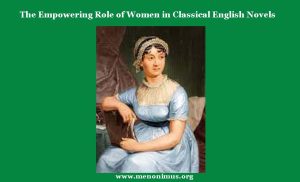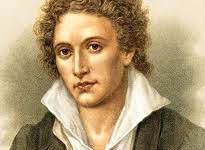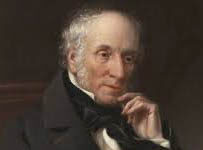The Empowering Role of Women in Classical English Novels
The Empowering Role of Women in Classical English Novels
The Empowering Role of Women in Classical English Novels
Introduction
Classical English novels, often set in the 18th and 19th centuries, are renowned for their vivid portrayals of society, culture, and human relationships. While these novels predominantly revolve around male protagonists, women in these literary works play a pivotal and empowering role. These women, whether as heroines, supporting characters, or even antagonists, contribute significantly to the narrative’s depth, social commentary, and the overall empowerment of the female gender. This essay explores the various facets of the empowering role of women in classical English novels, focusing on their agency, resilience, and societal impact.
Agency and Autonomy
One of the most striking aspects of women in classical English novels is their agency and autonomy, despite the societal constraints of the era. These women often push the boundaries of their traditional roles, making choices and decisions that shape their destinies. For example, Jane Eyre, in Charlotte Brontë’s novel, “Jane Eyre,” defies the Victorian expectations of women by pursuing her education and career. She embodies the notion that women can take control of their lives, make choices that align with their values, and seek self-realization.
Similarly, Elizabeth Bennet from Jane Austen’s “Pride and Prejudice” challenges societal norms through her sharp wit, independence of thought, and refusal to marry for economic security alone. Her character epitomizes the idea that women can assert their desires, even when it means going against the conventions of their time.
Resilience and Fortitude
Classical English novels also illustrate the resilience and fortitude of women facing adversity. The protagonists often undergo various trials and tribulations, showing their unwavering determination to overcome challenges. In Emily Brontë’s “Wuthering Heights,” Catherine Earnshaw and her daughter, Catherine Linton, endure the harshness of their surroundings and the tyranny of the male characters. Their resilience serves as a testament to the inner strength that women possess, which allows them to withstand even the most trying circumstances.
Moreover, the character of Esther Summerson in Charles Dickens’ “Bleak House” exemplifies the ability of women to endure hardships and still maintain their moral compass. Esther’s resilience in the face of a tumultuous legal case and her dedication to helping others showcase her unwavering character. The Empowering Role of Women in Classical English Novels
Challenging Gender Norms
Women in classical English novels often challenge the rigid gender norms of their society. They reject the limitations imposed on them and seek to break free from the conventional roles assigned to women. In George Eliot’s “Middlemarch,” Dorothea Brooke is a character who aspires to make a meaningful contribution to society through her intellectual pursuits. Her pursuit of knowledge and desire to create social change challenges the notion that women should be solely focused on domestic responsibilities.
Furthermore, the character of Bathsheba Everdene in Thomas Hardy’s “Far from the Madding Crowd” defies gender stereotypes by managing her own farm, making independent decisions, and rejecting the notion that women need male protection or guidance. She symbolizes the idea that women can be self-sufficient and self-reliant.
Social Impact
The empowering role of women in classical English novels extends beyond the individual level to the societal level. By portraying strong and independent female characters, these novels encourage readers to question and challenge the prevailing gender norms and biases of their own time. The characters often serve as a call for social reform and progress.
For instance, the character of Elinor Dashwood in Jane Austen’s “Sense and Sensibility” exemplifies the virtue of prudence and sound judgment. Her portrayal underscores the idea that women can contribute to the rational decision-making processes in society, challenging the prevailing belief that women were too emotional or irrational to participate in such matters. The Empowering Role of Women in Classical English Novels
Conclusion
The classical English novels of the 18th and 19th centuries offer a rich tapestry of female characters who, through their agency, resilience, and defiance of gender norms, empower women both within the narratives and in the real world. These characters are not just passive figures but active participants in their own destinies and agents of change in society. Their stories continue to resonate with readers today, providing valuable lessons on the strength, resilience, and potential of women in a world that often seeks to limit them. As such, these classical novels are not merely historical relics but enduring sources of inspiration and empowerment for women and men alike. 0 0 0. The Empowering Role of Women in Classical English Novels
The Empowering Role of Women in Classical English Novels
You May Like:
Additional Searches:











